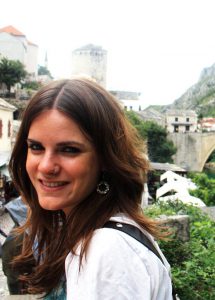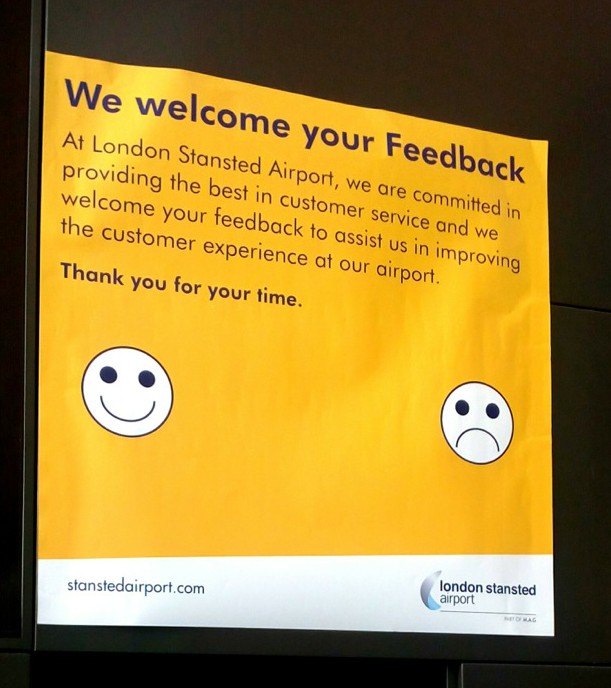Author: Teresa Barrio Traspaderne
Airports are symbols of power, not only in a political sense but also in an economic one. They represent the power of the State to control its borders, yet they also embody a relentless appetite for profit of those transnational corporations that are omnipresent at every single airport throughout the EU.
I arrived at London Stansted Airport on 12 December 2014 with the objective not to consume or, at least, to consume as little as I possibly could. I cautiously got there three hours before my flight was due to depart, so I sat down on the floor and started reading Kurt Vonnegut’s Breakfast of Champions. I immediately realised that Stansted, like so many other airports, was a temple of hyper-capitalism.
Airports are spaces designed to perpetuate and exacerbate the mythical appeal of capitalism. Long story short, I ended up having to pay whoever runs Ryanair 10 GBP for not having been able to rearrange my stuff into two or more separate bags that would not individually exceed a certain amount of kilos. As I could not find drinking water in the toilets, I also spent just over a pound to buy a bottle of water that supposedly funds water development projects in Africa. Supposedly. Consuming for charitable purposes could be regarded as a paradox of contemporary capitalism.
This will suffice for the economic dimension of airports as symbols of power. What perhaps struck me the most about my experience at Stansted has to do with the other dimension, the political one.
Airports are also places that have inevitably fallen prey to securitisation. In the wake of 9/11 and due to a (un)reasonable fear of further Islamist (or other) terrorist attacks, borders have become increasingly securitised. And to this I would add that borders are securitised to an extent that both passengers and the staff regard as utterly ridiculous. Especially white people, who are invisible. White passengers who didn’t know each other exchanged smiles when they were told to remove their boots. The security staff, who also happened to be white, were joking about silly Christmas jumpers.
I, as a white young woman with blue eyes holding an EU passport, have never been perceived as suspicious when crossing borders. In and out of the Schengen area, and in and out of the EU. This time I even got away with carrying a makeup bag with potentially dangerous liquids that were not zealously packed in a transparent plastic sealable bag!
Last but not least, there is an aspect that links both the economic and political parts of this duality. Once they go through security, passengers are no longer treated as citizens, but as consumers. While everybody was rushing to the glittery perfume shops that would eventually lead them to their boarding gate, I noticed a small billboard that read as follows: “We welcome your Feedback”. Feedback with a capital F, to make it sound even more important. Below there was a little iPad where passengers (or should I say consumers?) could fill out a really short survey about their experience of going through all these ritualistic processes of securitisation.
Airports are like spheres outside the time and space dimensions. Or at least that is how I perceive them. They are designed to look as clinical as possible, and to make the citizen/consumer want to buy more and more on their way to another airport, which will very likely resemble the one they departed from. And, of course, let’s not forget that they are symbols of both state and corporate power.
 Teresa Barrio Traspaderne is from Madrid, Spain. She holds a BA in International Relations and a BA in Translation and Interpreting from Comillas University. During her undergraduate degrees she participated in exchange programmes in Hong Kong and Berlin and took part in numerous Model United Nations conferences. She also worked as a trainee at Spain’s office of the International Organisation for Migration (IOM). She is currently studying a MSc in Violence, Conflict and Development at SOAS, University of London, with a fellowship from “la Caixa” Foundation.
Teresa Barrio Traspaderne is from Madrid, Spain. She holds a BA in International Relations and a BA in Translation and Interpreting from Comillas University. During her undergraduate degrees she participated in exchange programmes in Hong Kong and Berlin and took part in numerous Model United Nations conferences. She also worked as a trainee at Spain’s office of the International Organisation for Migration (IOM). She is currently studying a MSc in Violence, Conflict and Development at SOAS, University of London, with a fellowship from “la Caixa” Foundation.


